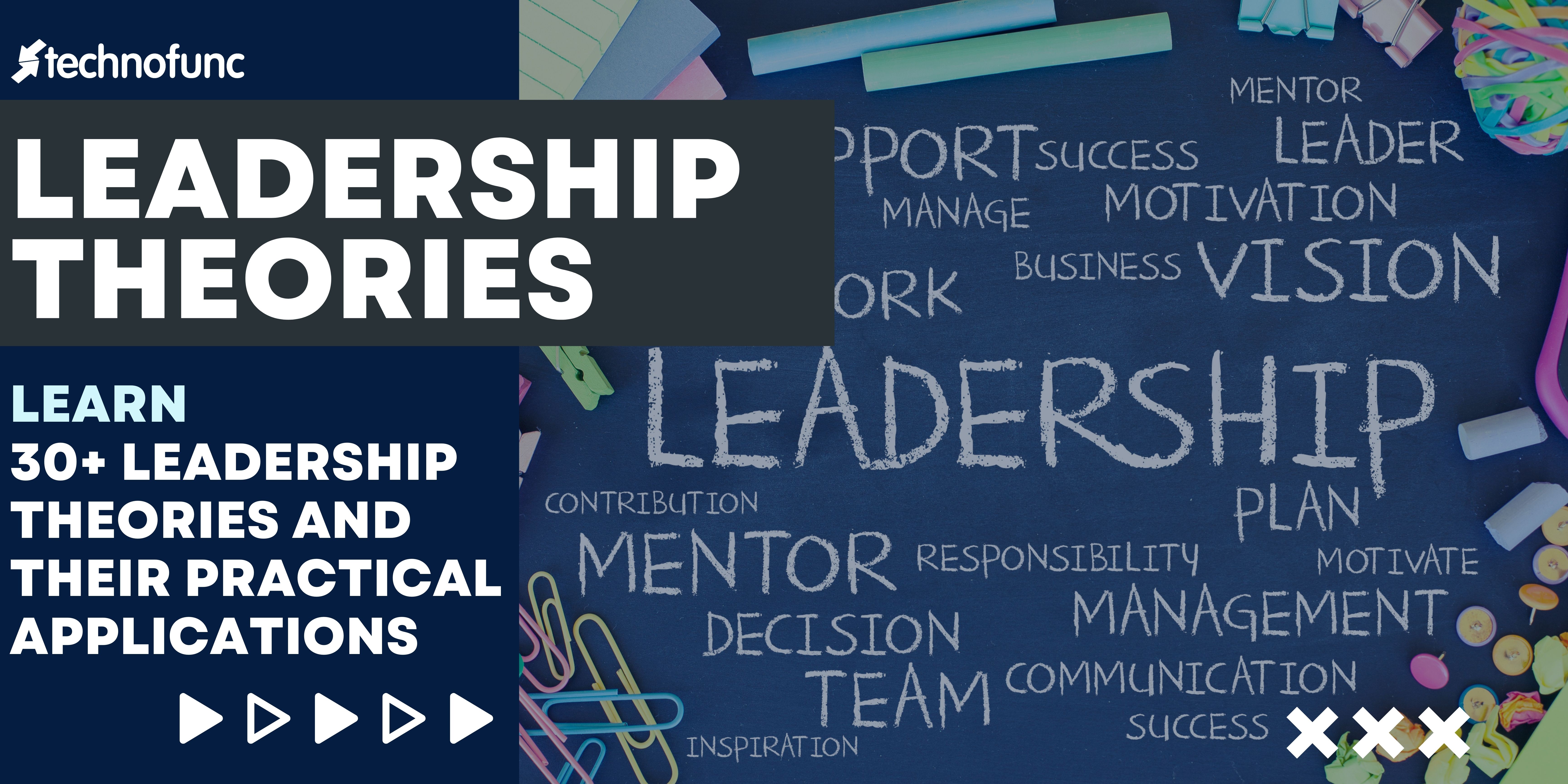- Home
- Business Processes
- Industry Knowledge
- Aerospace Industry
- Automotive Industry
- Banking Domain
- BFSI Industry
- Consumer/ FMCG Industry
- Chemicals Industry
- Engineering & Construction
- Energy Industry
- Education Domain
- Finance Domain
- Hospitality Domain
- Healthcare Industry
- Insurance Domain
- Retail Industry
- Travel and Tourism Domain
- Telecom Industry
- Leadership Skills
- eLearning
- Home
- Domain Knowledge
- Leadership Theories
Leadership Theories

Theories on Leadership
Learn how and why certain individuals become leaders, theoretical approach on leadership and how to apply leadership in the real-world organizations.
TechnoFunc brings to you various theories on leadership to advance your understanding of different approaches to leadership and learn new ways to practice leadership more effectively. Start building your foundations of Leadership. There is a wide and ever growing interest and different schools of thoughts in the study of leadership as it's so important for success of individual, organization and nations. Over time, a number of theories of leadership have been proposed to explain the concept and complexities of the leadership process. Quickly enhance your leadership skills and boost your leadership abilities.!
Transactional Theory of Leadership

Transactional leadership theory is based on the concept of rewards and punishments. The transactional management approach assumes that the desires of the leader and follower are different and leaders give followers something in exchange for getting something they want. Transactional leaders expect followers to be compliant and focuses on structure, instruction, monitoring, organization, or performance to get tasks completed on time.
Transformational Theories of Leadership

Transformational leadership theories focus on the leadership approach where the leader encourages, inspires employees to innovate and create positive and valuable organizational change. A transformational leader works towards “transforming” the culture to one that cultivates trust, mutual admiration, loyalty, and respect with the end goal of developing followers into leaders. Transformational leaders are known to be visionary, inspiring, daring, risk-takers, and thoughtful.
Types of Power in Leadership

Power is the ability to exercise influence or control over others. Leadership involves authority and it is very important for leaders to understand what type of power they're using. The 5 Types of Power in Leadership are Coercive power, expert power, legitimate power, referent power, and reward power. Authority is the right to command and extract obedience from others. It comes from the organization and it allows the leader to use power.
Vroom's Expectancy Theory

The Vroom-Yetton model is designed to optimize for the current situation the leadership style for best decision-making. Its a decision model formulated with contribution from Arthur Jago on how to make group decisions. The leader must gather information from the team prior to making the decision and involves more people in the decision process.
Explore Our Free Training Articles or
Sign Up to Start With Our eLearning Courses

About Us
Learning
© 2023 TechnoFunc, All Rights Reserved